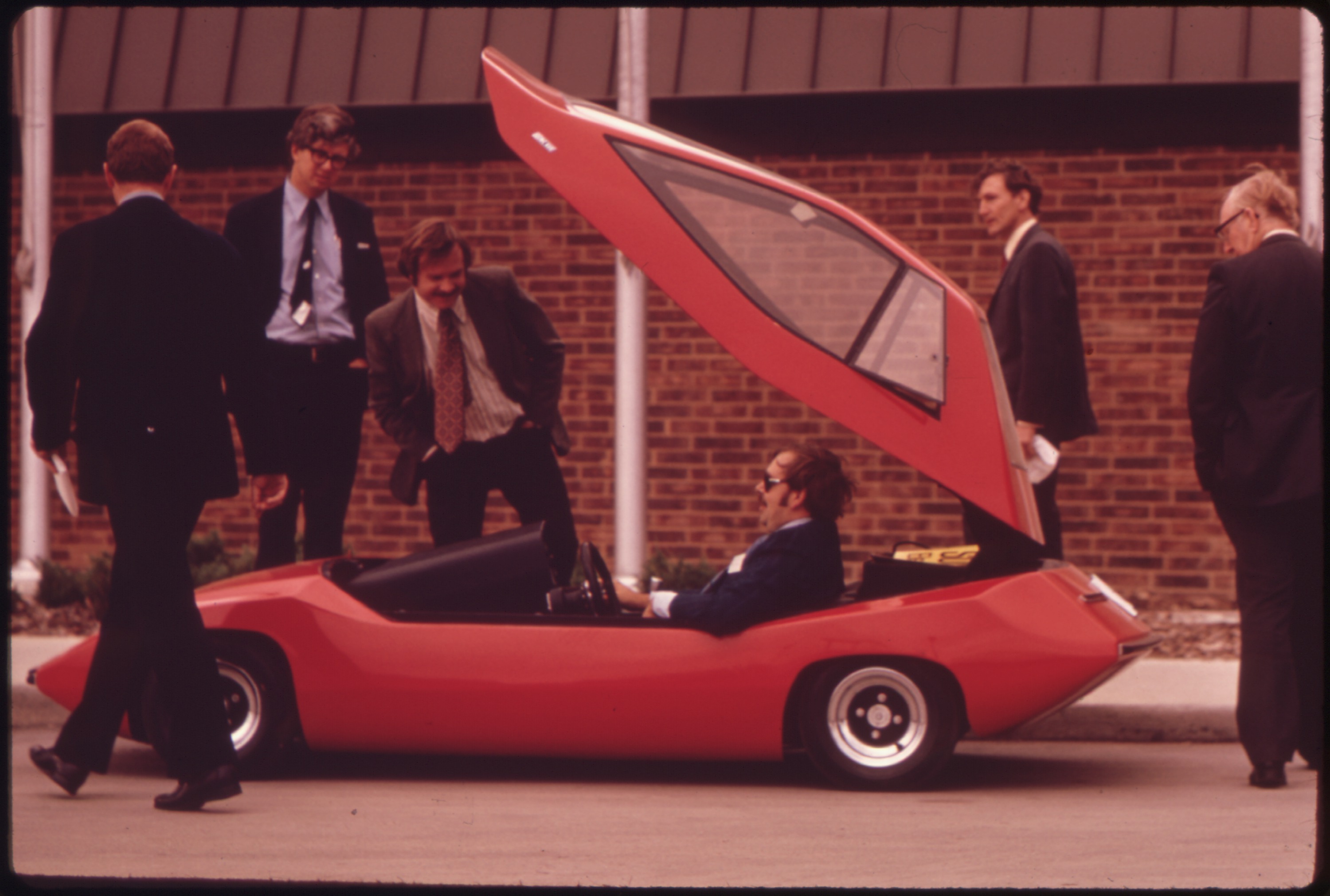From “Electric Avenue,” David M. Levison’s Foreign Affairs piece about how EVs can gain ground on cars powered by internal-combustion engines, a passage about the state’s potential role in reducing automobile emissions to zero:
“If technological progress is coupled with smart government policy, then these high-tech dreams could become everyday reality. When it comes to funding research on alternative-fuel vehicles, the United States has pursued the right strategy. The federal government has wisely avoided putting all its eggs in one basket, instead spreading research grants across a variety of technologies, most of which do not seem terribly promising but each of which has its partisans. Many small bets are more likely to find a winner than a few large ones; this is not the time for a new Manhattan Project or Apollo program.
As for consumer incentives, the U.S. government provides an infant-industry subsidy of $2,500 in tax credits for buyers of plug-in electric vehicles and has in the past provided other subsidies for buyers of fuel-efficient vehicles. Several U.S. states and some foreign countries provide additional subsidies.
A better, although more politically difficult, policy would be to charge those who burn gasoline and diesel fuel for the full economic and social cost of their decision. Right now, pollution is essentially free in the United States; drivers don’t pay anything for the emissions that come from their tailpipes, even if they’re driving a jalopy from the 1970s. If the government were to charge people for the health-damaging pollutants their cars emit and enact a carbon tax, the amount of pollution and carbon dioxide produced would fall. Consumers would drive less, retire their old clunkers, and be more likely to purchase electric vehicles. (An increase in oil prices — due to a lack of new discoveries, increasing demand in the developing world, or something else — would have the same effect.)
The United States already has a modest gas tax, which, although it was not designed for this purpose, does have the side effect of disincentivizing carbon emissions. But many economists favor a full-fledged carbon tax on fuels, the revenue of which could be used to fund environmental agencies’ efforts to mitigate damages from pollution and climate change. It could be offset by tax cuts elsewhere. Yet if raising taxes were politically easy, this would have been done long ago.
The government cannot rely on the gas tax forever. Since its 1919 debut, in Oregon, the tax has come to serve as the main source of road funding at the state and federal levels. Already, transportation funding is beginning to shrink due to improvements in fuel economy, and the Highway Trust Fund is teetering on the brink of insolvency. With the rise of alternative-fuel vehicles, the current funding arrangement will fail.
The immediate solution is for policymakers to take the politically unpopular step of raising the gas tax. In the long run, however, something else will need to be done. There is no reason to move away from the tax now, but as gasoline engines eventually lose market share, the government should think of and organize roads as a public utility, like electricity and natural gas. That would mean making drivers pay user fees, such as a per-mile charge that varied by the time of day and the type of vehicle used.”
Tags: David M. Levison

